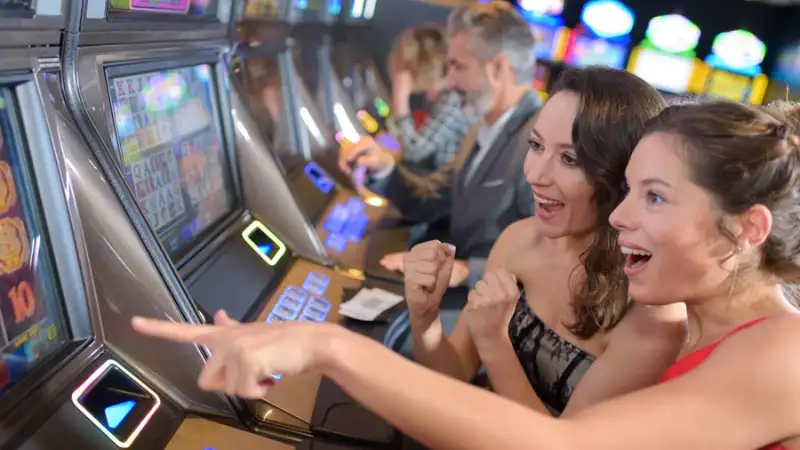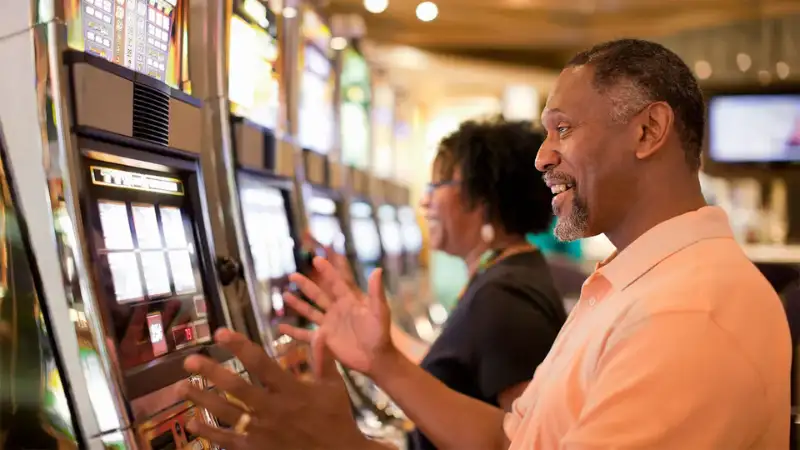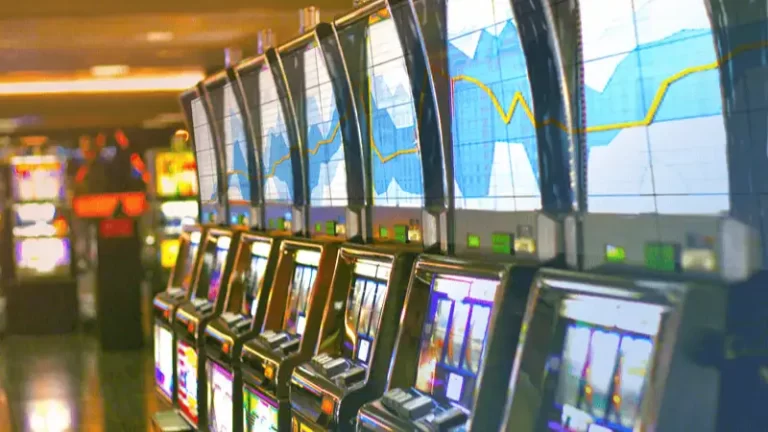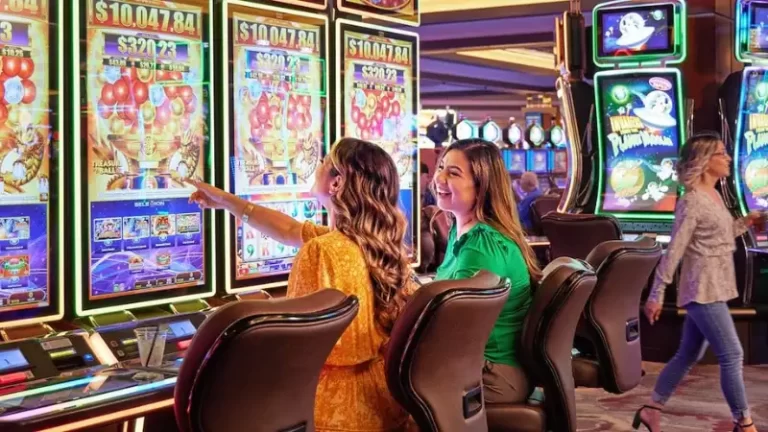
Slot Psychology
Players often spend more time at slot machines than they intended, and behind that pull of the lever is a field known as Slot Psychology. Casinos and game developers use insights from Slot Psychology to design features and mechanics that keep players engaged and entertained. At Slot Pillar, we examine the powerful psychological triggers inside slot games to explain why those spinning reels are so hard to leave.
What Is Slot Psychology?
Slot Psychology refers to strategic design choices in slot machines that influence player behavior. These include sensory feedback, reward timing, visual cues, sound effects, near-miss mechanics, and patterns that reinforce play. The purpose of Slot Psychology is to amplify excitement and encourage repeated spins, making the game more enjoyable and habit-forming for players.
From flashing lights to celebratory chimes, every element serves a psychological role. Even the pace of play taps into Slot Psychology, giving players rapid outcomes and small rewards that trigger dopamine, encouraging them to continue spinning.
Key Concepts in Slot Psychology
How Near-Miss Outcomes and Misleading Wins Affect Players
One of the most common Slot Psychology tricks is the near-miss. When a winning symbol almost lines up, players feel a rush of near-success. Similarly, when a loss shows up as a win of equal or lesser value than the bet, players feel rewarded, even though they lost money. This illusion is powerful in keeping players engaged.
Variable Ratio Reinforcement
The philosophy of Slot Psychology draws heavily from behaviorism and the concept of variable ratio reinforcement. Like in gambling or video games, unpredictable rewards—where spins sometimes pay out big and sometimes return nothing—keep players engaged longer than predictable outcomes would.
Sensory Reward Feedback
Visual and auditory rewards play a big role in Slot Psychology. Winning spins may trigger animations, flashing lights, or celebratory sounds. Even small wins can feel satisfying when paired with a well-timed animation. The sensory aspects create a positive association every time a player spins.
Near Miss Timer Designs
Some slots use Slot Psychology by adjusting spin speeds and pacing. A brief delay before a near-miss outcome builds anticipation, making the result feel more emotionally intense—even if it’s a loss.
Bonus Games and How Special Features Are Activated
Slot Psychology also relies on intermittent bonus features. Free spins, bonus payouts, and random multipliers make players feel in control or lucky, encouraging more play. Knowing a bonus could come on any spin makes players stay just a little longer.
Why We Keep Spinning
Emotional Thrills
The excitement from wins, near-misses, and bonus triggers produces dopamine. Slot Psychology uses these chemical feedback loops to create high emotions and make players want to repeat the cycle.

Escapism and Flow
Slot games are designed to induce a state of flow: focused yet carefree. Slot Psychology elements like immersive sounds, themes, or story backgrounds help players enter a state where time seems to pass quickly.
Illusion of Control
Even though outcomes are random, features like nudging or hold mechanics create an illusion that player choices matter. This is a core component of Slot Psychology—players believe they influenced the result, which keeps them spinning.
Social Proof and Reinforcement
Casinos often use jackpot meters, winning notifications, and animations in Slot Psychology to build a sense of community. When players see recent wins, they feel more optimistic about their own chances.
Commitment and Sunk Costs
Once players have invested time and money, Slot Psychology kicks in. They may feel reluctant to stop, thinking they’re close to a win or need to break even. The design of slots leverages these human biases.
Practical Slot Psychology Techniques
Dynamic Sound Effects
Packages of layered sounds and subtle tension-builders play before results appear. This sound design is a central part of Slot Psychology, setting moods that guide emotions.
Screen Animations
Even small wins trigger celebratory visuals and flashing lights. Slot Psychology uses animated responses to make players feel rewarded every few spins.
Auto-Play Features
Auto-play lets players automate spins at set intervals. The auto-play feature appeals to Slot Psychology by facilitating longer sessions without continuous input, reinforcing passive engagement.
Progressive Jackpots
Maybe the most powerful Slot Psychology feature is the large progressive jackpot meter. Seeing a growing figure builds anticipation and hope, encouraging more activity.
Virtual Currencies and Tier Rewards
Slot Psychology frequently includes loyalty systems. Players earn virtual points or tiers that unlock benefits. The psychological effect is to make players feel recognized and engaged over time.
How Developers Use Slot Psychology
Developers partner with psychologists, neuroeconomists, and UX designers to integrate Slot Psychology principles effectively. Through user testing and data analysis, they adjust animation timing, bonus frequencies, button placement, and sound triggers. Every detail aims to optimize player engagement while technically meeting fairness and regulatory standards.
Positive Aspects and Ethical Implications of Slot Game Design
From a business perspective, Slot Psychology boosts spending, engagement, and session length—which is why casinos heavily invest in it. But there is a careful ethical balance:
Regulators require transparency about odds, RTP, and bonus terms. Ethical developers still use Slot Psychology, but prioritize fairness, clear labeling, and responsible gaming tools.
Responsible gambling features help players limit time and money spent. Ethical use of Slot Psychology should respect player well-being and prevent harmful behaviors.
How to Play with Awareness
To enjoy slot games safely while appreciating Slot Psychology mechanics:
- Set clear session time and budget limits.
- Recognize visual and audio cues designed to influence behavior.
- Use gamble tracking features provided by reputable sites.
Emerging Trends in Slot Psychology
Personalization Algorithms
Some slots are experimenting with AI-driven personalization. Slot Psychology now includes adapting animations, sound cues, and feature frequency based on player behavior. This customization aims to keep engagement high without being manipulative.
Responsible Pop-ups
An ethical trend merges Slot Psychology with player protection by integrating periodic reminders or session alerts disguised as helpful tips or messages mid-game.
Social and Live Experiences
Real-time keepers, chat rooms, and live events bring communal aspects of Slot Psychology into online gaming, fostering engagement and a sense of connection during play.
Mobile Focus
Slot Psychology is heavily adapted for mobile devices. Compact layouts, haptic feedback, and sound cues are incorporated to keep players actively spinning even during short gaming sessions.
Measuring the Impact of Slot Psychology
Operators and developers measure performance metrics like session length, player retention, return visits, bet frequency, feature use and conversion rates. A/B testing allows experimentation of new Slot Psychology mechanics—timing bonus animations or altering near-miss frequencies—and optimization for long-term engagement.
Responsible Gaming and Slot Psychology
Despite its power, the concepts in Slot Psychology can be used responsibly. Ethical casinos use transparent column designs, clear disclosures, voluntary limit-setting features, and self-exclusion options. The goal is to create fun without undermining player welfare.
Final Thoughts
Slot Psychology is a powerful force behind the allure of slot machines. From sensory feedback to autoplay, from nervous anticipation of near misses to jackpot aspirations, it’s all designed to keep players spinning. Understanding the psychological design helps players enjoy slots with clarity and composure.
By combining entertaining features with player protection, operators can offer richer gaming experiences. At Slot Pillar, we value an informed approach to slot gaming. Awareness of Slot Psychology mechanics allows players to play mindfully and make better choices, truly enjoying the experience rather than chasing impulses.



